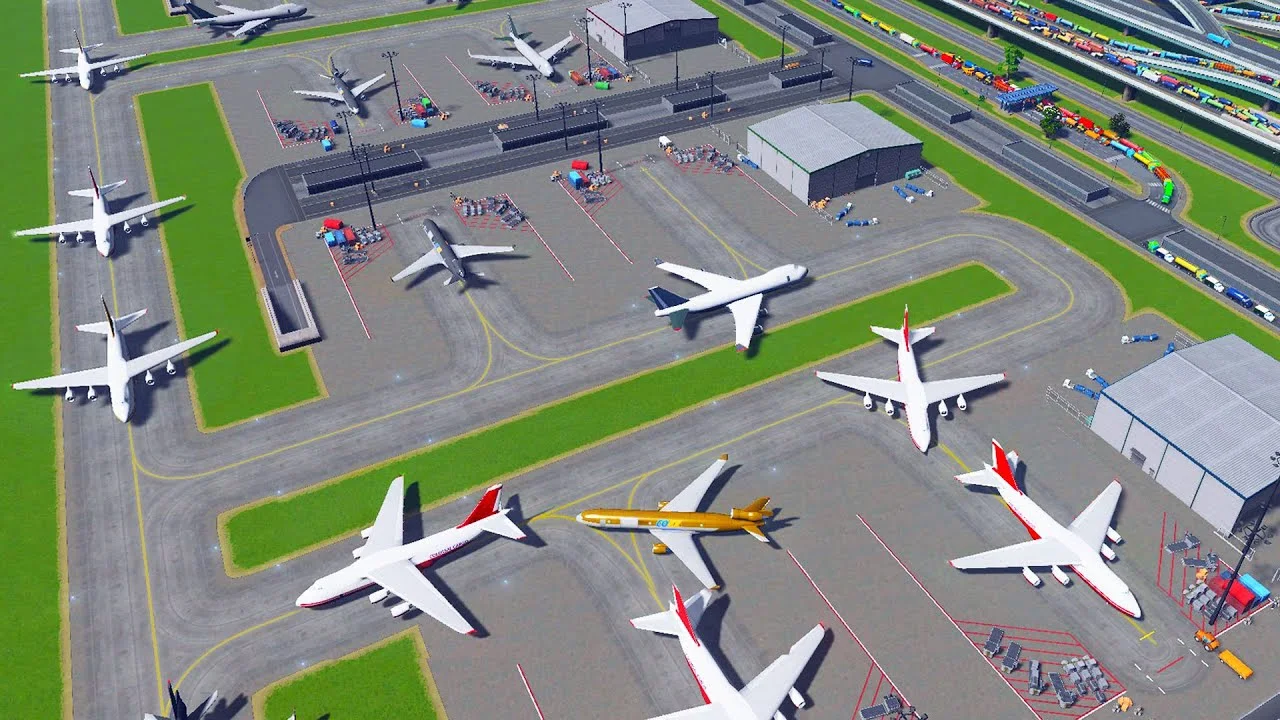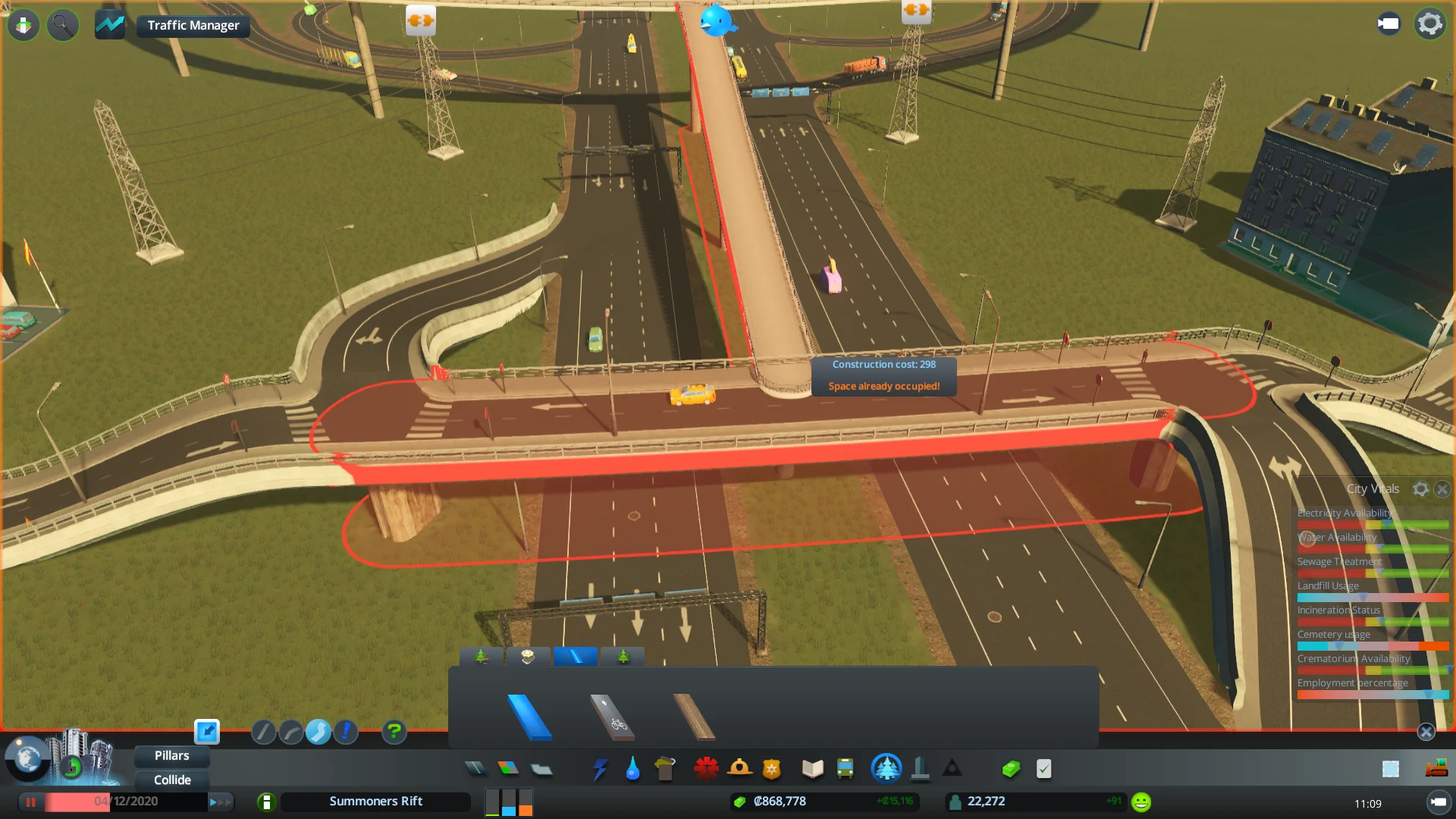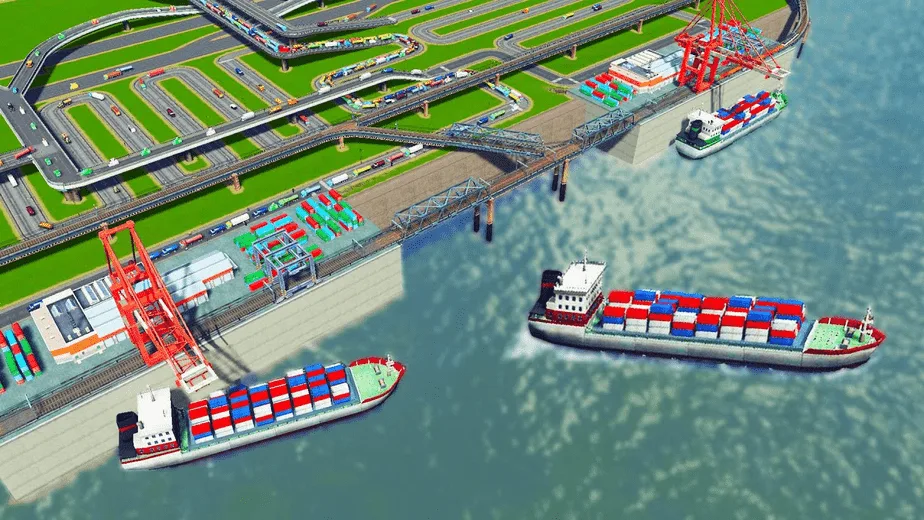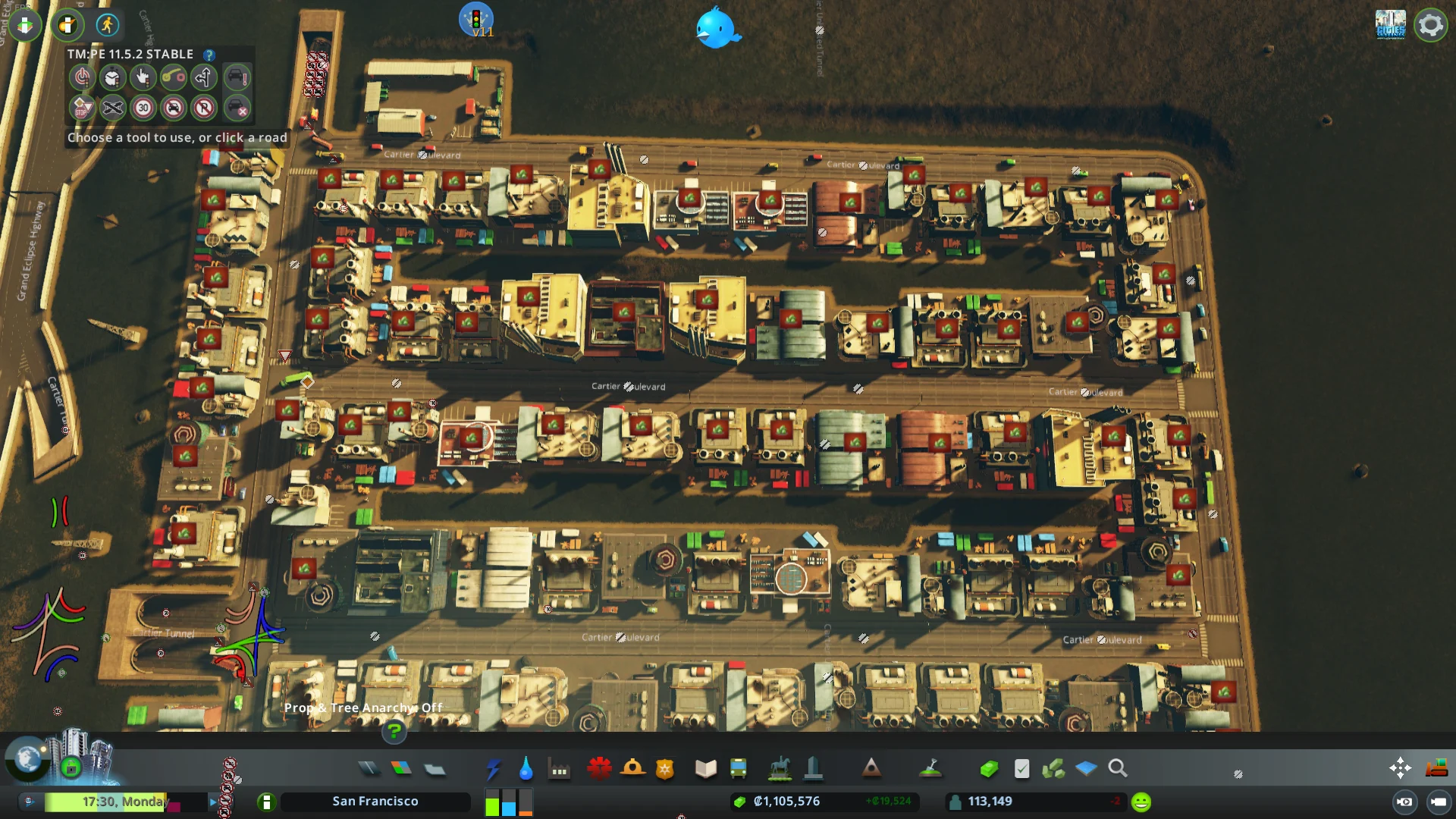You’ll find several different types of raw materials in Cities: Skylines. All of these resources are used in the various industrial zones that you will construct. However, some of you might run into the issue of not having enough raw materials available. So in this guide, we’ll discuss how you can fix that.
You can get raw materials in Cities: Skylines to the buildings in your city through additional transportation. A few ways of increasing transportation options are freight trains and cargo hubs, but there are many other options to avail as well.
Cities: Skylines can seem like a very dense and difficult game when you first interact with its systems. However, over time, you realize that once you have an understanding of how systems operate, making them work to your advantage is easy. Read on to find out more about how you can do this!
Related: Why Is Everyone Sick in Cities: Skylines? (6 Reasons)
Fix “Not Enough Raw Materials” in Cities: Skylines
The main issue that causes this error to occur is not that you do not have enough resources. However, it is frequently caused by an inability to effectively transport raw materials to industrial zones where they are required. This can cause the industry to stop functioning and requires swift action on your part.
One of the main ways by which you can counteract this specific issue is if you ensure that there are sufficient transportation techniques in your City. These need to connect to areas on your map where raw materials are made, all the way to where they can be processed. We list a few means of transport to use here:
1) Cargo Airports

One of the most efficient and cost-effective methods. You use Cargo Airports to transport your raw materials from their collection stations to their ultimate industries. The Cargo Airports were added in the “Industries” expansion DLC. And there were two main types of cargo airports added to facilitate you.
These types included the following: general Cargo Airports and Cargo Airport Hubs. The former will allow you to transport your cargo. Cargo that might otherwise be traveling through a cargo plane or truck can be sent through here. The Cargo Airport acts as a facilitator between these two other types of transportation and helps you immensely.
The second type of transportation is the Cargo Airport Hub. This functions quite similarly to a Cargo Airport, but it will consume more of your resources. These resources will include things like water, electricity, and general upkeep costs. You will also have to get more cargo planes and trucks to access the full capabilities of the hub.
2) Paths and Roads

Another approach is to ensure that your transportation systems are not the source of your errors. So create extensive paths and roads for all types of vehicles to traverse. Not only can these roads be used by buses or trucks. But these can be used by cyclists and bikers as well.
Cyclists, in particular, can travel on the sidewalks you build. You can also decrease the number of cars and public transport users in your city by using or encouraging more cyclists. This will be advantageous as it frees up more of your streets for your resource transportation trucks.
You can also build a road with a bike lane. This increases the number of cyclists, as we mentioned above, but it also reduces the burden on your city for parking spaces. There is nothing better than being able to reduce the overall noise and land pollution levels of your city.
Finally, there are a variety of policies that you can implement that can positively impact your city. Various encouragements and bans can help maintain a fast and steady commuting system. This will benefit your entire transportation system.
Related: How To Get More Workers In Cities: Skylines (4 Ways)
3) Ships

To ensure you’re receiving more resources another building that can be created is a port. Once created, ships will be able to find them automatically. You won’t need to create shipping routes yourself. These will naturally be formed as you create more ports and industrial sections within your city.
It is important to take note that Ships will only be unlocked for you when your City reaches a particular Capital City size milestone. Otherwise, you will not be able to build them freely. And will instead need to wait to deploy them in particular.
Additionally, you can create things known as cargo harbors. These can be noisy, consume a lot of water and energy, and have a high cost. But these harbors can be immensely useful. These cargo harbors are far more efficient than road systems. They will be able to transport materials and goods at a very good rate and flow through your city.
You can build a Cargo harbor at the cost of $60,000 within the game and will need to maintain it with 1,920 per week. However, once created, they will essentially pay for themselves by improving their resource deficit.
4) Improving Services

The next fix might seem obvious, but many of you might avoid doing this until the very end. Improve the various resource services that you are managing within your city. Simply put, numerous resource services may be producing at critically low levels, causing errors.
If you wish to resolve this issue, then you will have to address these services as soon as possible. The easiest way to fix the problem is to then increase the overall level of these services that you provide within your city. When you start doing this, you should notice an increase in the number of raw materials you produce.
These raw materials should, with good transportation, find themselves in your industrial sectors. And by doing so, you will remove the error that you are receiving regarding “Not Enough Raw Materials.”
Just make sure you look over any services that you might have when you get the message and ensure they have enough to advance to the next step of their development.
5) Using Built-In Mods
If you’re still having trouble fixing the problem in the game, then you can use mods. Several in-game mods can be applied to make Cities: Skylines easier for you. These mods are usually installed with the hope of making gameplay easier if a player should run into an unknown bug or issue.
One of the most useful mods that the game currently has is the “Unlimited Oil and Ore” mod. This mod is quite popular because it prevents oil and ore resources within the terrain from being reduced upon being farmed.
This means that your resource store will not get depleted, and you will have a steady stream of natural resources and raw materials.
You must, however, activate the mod before the resource has been completely used up. Otherwise, the resource will be gone within your game, even after you turn the mod on within the system menu. It’s also important to remember that this mod merely prevents the resource from being depleted. It does not renew or create resources for you in-game.
Related: How To Make Money In Cities: Skylines (Ultimate Guide)
Important Tips
Ultimately, solving the issue of no raw materials in Cities: Skylines is simple. It merely requires that you focus on the raw materials used by the industries that you have set up.
If they’re asking for a specific type of raw material then it can be important to make sure you have production houses that are set up to provide that resource.
However, other times it can be quite easy to recognize that the fault is not that materials aren’t available, but that they aren’t reaching industrial zones. So it can be helpful if you have a variety of transport methods that can aid you in the process of delivering your much-needed raw materials to your industries.
Finally, if nothing works and you feel stuck, several mods can help. Just one of them is the mod I mentioned that will make sure that you have an unlimited supply of oil and ore from your resource areas. This should alleviate some of the requirements. You can find other mods regarding other raw materials online.
I hope this guide has been useful in solving your specific concerns regarding the “No Raw Materials” error in Cities: Skylines. If you have any further questions or queries regarding Cities: Skyline, then let us know. We have plenty more ideas for you crafty builders.

